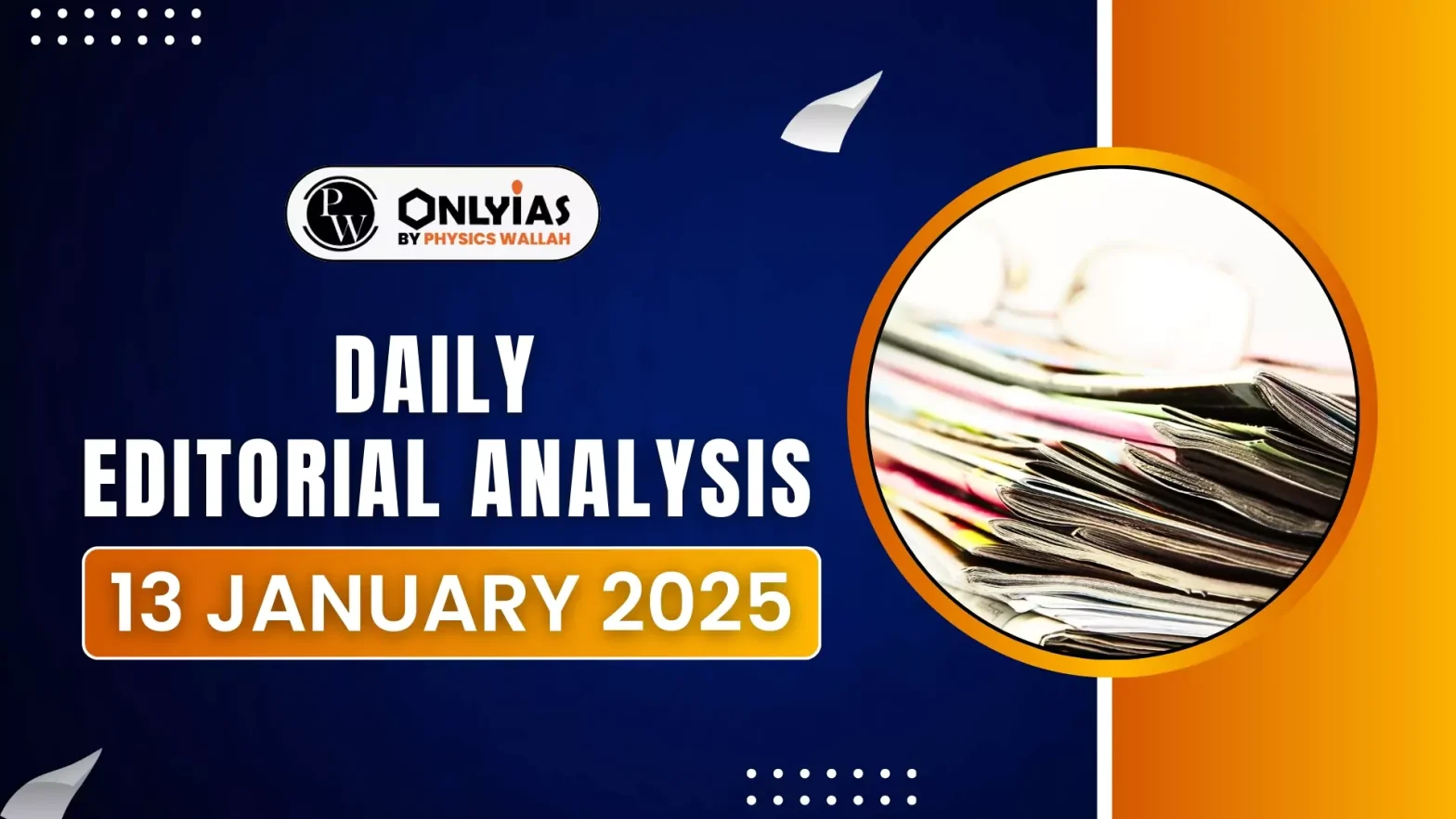Swami Vivekananda’s birthday on 12th Jan 2025 will continue to inspire discussions around his contributions to philosophy, spirituality, and India’s global role.
Vivekananda’s Vision for Harmony
- Vivekananda’s Call to Action: Social unrest, inequalities, environmental disasters, and geopolitical discord highlight the world’s vulnerabilities. His vision of India as a “world teacher” offers a powerful path forward in turbulent times.
- Teachings : Swami Vivekananda’s messages transcend time and geography, guiding us towards universal harmony. His teachings encourage selflessness, collaboration, and the realisation of oneness for global well-being.
- Vivekananda’s message has the potential to inspire a movement addressing today’s challenges and building a better future.
- Vision of India: For Swami Vivekananda, India was not merely a nation of ancient glory; it was the spiritual heart of the world, destined to lead humanity by sharing its wealth of wisdom.
- India’s role is rooted in uplifting humanity, not seeking pride or dominance.
- Vedantic principles: Vedantic principles highlight the interconnectedness of all beings and the divinity within each individual.
- Embracing Collective potential: Arise, awake, and stop not till the goal is reached” – urging humanity to transcend self-interest and embrace collective potential. His vision remains a guiding light for uniting a fractured world through collective action.
- Declares Brahman as one and indivisible, present in all living beings, breaking down divisions.
Enroll now for UPSC Online Course
Philosophy of Vedanta
- Addressing the Divisive Paradigms : Vedanta challenges competition, exploitation, and divisiveness in today’s world. Climate change, poverty, inequality, and conflict are symptoms of a deeper disconnect.
- Selflessness and Shared Responsibility: Vedanta calls for confronting global challenges with a spirit of unity and collective responsibility.
- Call for selflessness: His call for selflessness is crucial for humanity’s survival, especially in addressing environmental crises.
G20 Delhi Declaration
- Reflection of thought: The 2023 G20 Delhi Declaration reflects Swami Vivekananda’s philosophy in modern diplomacy.
- People: Empowering individuals through education, health, and equity to unleash their full potential.
- Prosperity: Promoting inclusive economic growth that leaves no one behind.
- Planet: Safeguarding the environment with sustainable, innovative solutions.
- Peace: Building bridges of understanding among nations to foster harmony and coexistence.
- Ethical Awakening: The declaration embodies Swami Vivekananda’s principles of universal love and selflessness as the foundation of progress.
India’s Sacred Responsibility
- Spiritual Inquiry and Resilience: India is uniquely positioned to lead global transformation, with a long history of spiritual wisdom and resilience.
- Tradition and Modernity: The nation exemplifies the balance between tradition, modernity, the individual, the collective, and humanity’s relationship with nature.
- India as a beacon of wisdom and a catalyst for change, applying ancient principles to modern challenges.
- Balancing Material and Spiritual Progress: India’s teachings offer a critical lesson in balancing material progress with spiritual depth.
- Global Recognition of Indian Practices: Yoga and Ayurveda, rooted in ancient wisdom, are globally recognized for promoting holistic well-being.
- Inspiration by Gandhian Ideals: Community-driven solutions tackling poverty, inequality, and ecological issues.
- Vedantic Vision of Unity: India’s Vedantic philosophy offers a solution to isolationism and division in global governance.
- Role of India : It is time for India to fulfil its destiny as a global guide, offering transformative wisdom to a world in need.
Check Out UPSC NCERT Textbooks From PW Store
Call for Global Renewal and Action
- Ethical leadership: Leaders must rise above partisan interests and embody integrity, selflessness, and a commitment to the greater good. Swami Vivekananda’s call for “man-making” education reminds us that true leadership is rooted in character.
- Cross-cultural dialogue: In a polarised world, building bridges of understanding between cultures and traditions is not optional — it is essential. India’s ethos of “unity in diversity” can serve as a model for global harmony.
- Sustainable development: Governments, businesses, and citizens must prioritise sustainability, recognising that economic growth cannot come at the expense of the planet or the vulnerable. Empowering youth: The youth hold the power to shape the future. They must be inspired to lead with responsibility, compassion, and a commitment to service.
- Strengthening global institutions: Multilateral organisations must be reimagined to reflect justice, equity, and shared purpose, moving beyond the politics of dominance.
Way Forward
- Role as a Vishwa Guru: India’s role as a vishwa guru is about offering wisdom, not asserting power.
- Teachings: Vivekanda’s His call to selflessness, compassion, and service is the foundation of a new world order. A world anchored in peace, prosperity, and harmony through collective upliftment.
- Embracing Vivekananda’s Vision: Celebrating his birth anniversary by embracing unity and collaboration for a global renaissance.
- Internalising Vedanta: Leveraging Vedantic principles and the Delhi Declaration to foster global harmony and sustainability.
Enroll now for UPSC Online Classes
Conclusion
In a world beset by division and challenges, Swami Vivekananda’s timeless teachings offer a path toward unity, selflessness, and collective progress.
![]() 13 Jan 2025
13 Jan 2025
